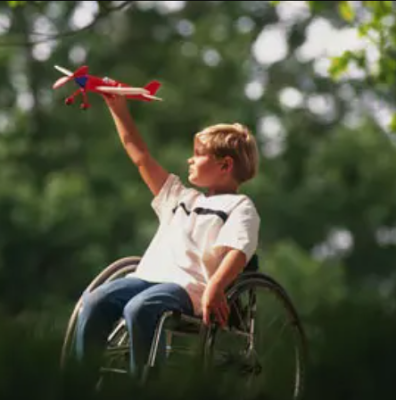Caring for Disabled Kids
Understanding Disability
Disability is defined as a physical or mental impairment that affects an individual's ability to carry out everyday activities. It can be present at birth or acquired later in life due to illness or injury. Some of the most common disabilities among children include autism, cerebral palsy, Down syndrome, and muscular dystrophy.
Challenges Faced by Disabled Kids
Disabled kids face a lot of challenges in their daily lives, including physical limitations, difficulty in communication, and social isolation. They may also experience discrimination and bullying, which can affect their mental health and self-esteem.
Supporting Disabled Kids
Parents and caregivers of disabled kids can provide support in many ways, including:
- Creating a safe and accessible home environment
- Encouraging independence and self-esteem
- Providing access to medical care and therapy
- Advocating for their child's rights and needs
The Importance of Inclusion
Inclusion means providing all children, regardless of their abilities, with equal opportunities to learn, play, and socialize with their peers. It's essential for the development of disabled kids, as it helps them build social skills, confidence, and a sense of belonging.
How to Promote Inclusion
Some ways to promote inclusion include:
- Encouraging participation in community activities
- Providing accessible play equipment and sports facilities
- Organizing disability-friendly events
- Teaching children about disability and diversity
Benefits of Inclusion
Inclusion has a lot of benefits for disabled kids, including:
- Improved social skills and self-esteem
- Greater opportunities for learning and development
- Increased independence and confidence
- Reduced discrimination and prejudice
Challenges Faced by Caregivers
Caring for a disabled child can be emotionally and physically draining. Caregivers may experience stress, anxiety, and depression, and often feel isolated and unsupported. It's essential for them to take care of their own health and well-being, as well as their child's.
Self-Care for Caregivers
Some ways caregivers can take care of themselves include:
- Making time for hobbies and relaxation
- Seeking support from family and friends
- Joining a support group for caregivers
- Taking breaks when needed
Importance of Self-Care
Self-care is crucial for caregivers, as it helps them maintain their physical and mental health, and prevents burnout. It also enables them to provide better care for their child.
Conclusion
Caring for a disabled child can be challenging, but also incredibly rewarding. With the right support and resources, parents and caregivers can provide their child with a happy and fulfilling life. Inclusion, self-care, and advocacy are essential components of caring for a disabled child, and can make all the difference in their development and well-being.
FAQs
Q: What resources are available for parents of disabled kids?
A: There are many resources available for parents, including support groups, therapy services, and advocacy organizations.
Q: How can I help my child cope with discrimination and bullying?
A: You can teach your child about their rights and how to advocate for themselves, as well as seek support from school staff and anti-bullying organizations.
Q: What are some common therapies for disabled kids?
A: Some common therapies include physical therapy, occupational therapy, and speech therapy.
Q: How can I find inclusive activities for my child?
A: You can look for community events and activities that are disability-friendly, or organize your own events with other parents and caregivers.

